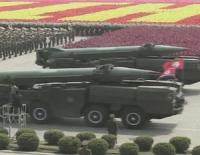-
Homicide the largest contributor to years of lost life among African Americans
Homicide is the largest contributor to potential years of life lost among black Americans, according to a new study. Homicide was the 12th highest contributor to potential years of life lost for white Americas. Black Americans are disproportionately affected by homicide, but the amount invested in homicide research is dramatically underrepresented in public health. Research on heart disease, white Americans’ No. 1 cause of potential years of life lost, received 341 grants and almost 600 publications during 2015; research on homicide received just a handful of federal grants and publications.
-
-
Noncompliance hobbles comprehensive background check policy for private-party gun sales: Study
Of the three states that recently expanded comprehensive background check (CBC) policies to include all gun transfers, including those among private parties, only Delaware showed an overall increase in firearm background checks. Washington and Colorado had no changes, which the study authors say suggests that compliance and enforcement were incomplete. “The overwhelming majority of all firearms used for criminal purposes, some 80 percent, are acquired through private party transactions,” said one researcher. “By expanding background checks to include private-party transfers, there is a higher chance that these policies will make it harder for felons and other prohibited persons to acquire firearms and commit violent crimes.”
-
-
Finding confirms Assad’s systematic use of chemical weapons in Syria
Samples from an attack in northern Syria on 30 March “prove the existence of sarin,” a deadly nerve agent, the director of the Organization for the Prohibition of Chemical Weapons (OPCW) said on 4 October. The attack injured dozens, but it did not kill anybody. So why is this finding important? Because it confirms a pattern of sarin use by the government of Bashar al-Assad.
-
-
More than half of police killings in U.S. not officially documented on death certificates

Official death certificates in the United States failed to count more than half of the people killed by police in 2015 — and the problem of undercounting is especially pronounced in lower-income counties and for deaths that are due to Tasers, according to a new Harvard study. In contrast, a database from the London-based Guardian newspaper captured a large majority of these deaths, the study found.
-
-
A public health approach to stemming gun violence
Public mass shootings in the United States have become more frequent. Unfortunately, it appears that these killings are somewhat contagious. They also seem to be becoming more deadly—largely because of the weaponry at the killers’ disposal. “A lesson from public health is that it is usually more effective to change the environment than to try to change people. The U.S. should use the same harm reduction approach to gun violence that it uses to treat other public health threats, like automobile crashes or air pollution—employing a wide variety of methods to reduce the problem,” says a public health expert.
-
-
“North Korea crisis could spark a global chain of nuclear strikes”: Luxembourg Forum

Leading international experts on nuclear non-proliferation and world leaders met Monday in Paris for the International Luxembourg Forum on Preventing Nuclear Catastrophe to express their concern on the escalating crisis in nuclear weapons control. During his opening remarks, Tony Blair warned that “the proliferation of nuclear weapons is the most serious threat today to the fate of humankind.” Blair further said that “Proliferation begets further proliferation leading to risk of additional terrorist capability.”
-
-
Detecting nuclear materials used in dirty bombs
Radiological material falling into the wrong hands is a constant security concern for governments around the world. Border agencies must scan incoming vehicles and freight for radioactive material, which is a challenging task, as huge volumes of both move across borders each day. Imperial College London’s physicists have developed two devices for detecting nuclear materials.
-
-
Training bystanders to act as first responders
Blood loss is the leading cause of preventable death during an active shooter or intentional mass casualty event where a medical response is delayed. To educate the public – who often find themselves on the front line in emergency situations – a team led by a trauma surgeon from Rutgers New Jersey Medical School and EMS from University Hospital are directing the largest Stop the Bleed campaign in the state, teaching laypeople basic skills of hemorrhage control for immediate, on-the-scene care.
-
-
Terrorism and guns: Troubling implications for U.S.
According to the authoritative Global Terrorism Database (GTD), firearms accounted for about 55 percent of fatalities in terrorist attacks even though guns were used in less than 10 percent of terrorist events. Attacks involving more common weapons such as explosives, incendiary weapons and vehicles, or melee weapons had fewer fatalities than attacks involving firearms.Among industrialized countries, the United States has the highest proportion of terrorist attacks in which the perpetrators used firearms.
-
-
FISA Section 702 reform bill a good Start, but improvements still needed: Critics
Last Wednesday, the draft of the House Judiciary Committee’s bill to reauthorize and reform Section 702 of the Foreign Intelligence Surveillance Act (FISA) was made public. Section 702 permits the government to collect the content of communications of targets who are non-Americans located abroad, including communications they may have with Americans. Critics urge Congress to pass significant and meaningful reforms to Section 702 which address the serious constitutional concerns it raises, or allow that surveillance authority to expire.
-
-
Scientific basis of fingerprints too weak for legal certainty
It may surprise many, especially those susceptible to the CSI effect, but fingerprint evidence is not conclusive beyond a reasonable doubt. A new American Association for the Advancement of Science (AAAS) working group report on the quality of latent fingerprint analysis says that courtroom testimony and reports stating or even implying that fingerprints collected from a crime scene belong to a single person are indefensible and lack scientific foundation.
-
-
Why a congressional ban on bump stocks is unlikely

Even in the wake of the deadliest mass shooting in U.S. history, it appeared that nothing could shake the immovable stalemate over gun rights in Congress – but a strange thing happened: Republicans started talking about tightening regulations on firearms. But until Congress can prove otherwise, and Republicans in particular move from rhetoric to legislation, it’s reasonable to expect this latest bipartisan opening to meet a similar fate to the bipartisan move, in the wake of Sandy Hook, to expand background checks: That attempt, led by Senator Pat Toomey (R-Pennsylvania) and Senator Joe Manchin (D-West Virginia), could not overcome a Senate filibuster.
-
-
Changes needed to news coverage of mass shooters: Researchers
Reducing news coverage of rampage shooters’ personal information, like their names and photos, could be a deterrent to future mass shooters, according to researchers. The researchers identify three consequences of current news coverage, which typically includes publishing names and faces of mass shooters in initial and follow-up coverage: mass shooters’ fulfillment and incentive to achieve notoriety; competition among offenders to maximize victim fatalities; and copycat and contagion effects.
-
-
Russia breaks into U.S. soldiers' iPhones in apparent hybrid warfare attacks
The U.S. Army’s Asymmetric Warfare Group, in charge of finding ways to counter emerging threats, recently issued warning about the dangers of Russia’s hybrid warfighting concepts, saying that the U.S. military as a whole may be ill-suited to respond to them in a crisis. Now, American troops and troops from NATO member states say they have been subjected to a campaign of surveillance and harassment via their cellphones, the internet, and social media, a campaign which is the hallmark of the “Russian New Generation Warfare.”
-
-
Days before LV shooting, DHS warned of threats by “lone offenders” to public events
On 20 September, only days before the Las Vegas mass shooting, DHS issued an 11-page report warning that “unaffiliated lone offenders” were one of the biggest threats to large public gatherings. The report did not refer to Las Vegas, but rather noted security concerns about public events – including sports events — in the South-Central areas of the United States. The 20 September report is similar to an unclassified, for-official-use-only “Joint Special Event Threat Assessment,” issued by DHS and the FBI in December 2016, which warned of the threats to public events in Las Vegas, especially New Year celebrations. “Unaffiliated lone offenders and [homegrown violent extremists] are of particular concern,” the document said.
-
More headlines
The long view
Factories First: Winning the Drone War Before It Starts
Wars are won by factories before they are won on the battlefield,Martin C. Feldmann writes, noting that the United States lacks the manufacturing depth for the coming drone age. Rectifying this situation “will take far more than procurement tweaks,” Feldmann writes. “It demands a national-level, wartime-scale industrial mobilization.”
How Male Grievance Fuels Radicalization and Extremist Violence
Social extremism is evolving in reach and form. While traditional racial supremacy ideologies remain, contemporary movements are now often fueled by something more personal and emotionally resonant: male grievance.
The Surprising Reasons Floods and Other Disasters Are Deadlier at Night
It’s not just that it’s dark and people are asleep. Urban sprawl, confirmation bias, and other factors can play a role.
Why Flash Flood Warnings Will Continue to Go Unheeded
Experts say local education and community support are key to conveying risk.
